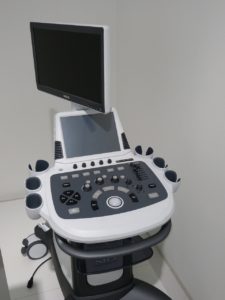Potential Breakthrough in care for Alzheimer’s using Ultrasound
A team of Alzheimer’s researchers from the Queensland Brain Institute in Australia has developed a non-invasive ultrasound technology that could restore memory in Alzheimer’s patients. This non-pharmacological procedure offers exciting new potential for the care for Alzheimer’s.
We know that Alzheimer’s disease is associated with the buildup of two types of lesions that interfere with brain function: amyloid plaques and neurofibrillary tangles. This study used ultrasound therapy to clear the buildup in the brain of defective beta-amyloid molecules and tau proteins–the sources of the plaques and tangles. Initial research findings were announced in a press release in March 2015.
http://www.sciencealert.com/new-alzheimer-s-treatment-fully-restores-memory-function
Initial Findings Using Therapeutic Ultrasound
This ultrasound treatment was first studied on mice. It uses focused therapeutic ultrasound, which beams sound waves into the brain tissue. These sound waves use high-speed oscillation to open the blood-brain barrier and to clear out beta-amyloid clumps.
Initial research findings show that the technique restored memory function in 75% of mice involved in the trial. The mice showed improved performance in three memory tasks: a maze, a recognition test, and an active place avoidance task. These initial findings support further exploration of the therapeutic potential of this noninvasive treatment.
Jürgen Götz, one of the project’s researchers, commented, “The word ‘breakthrough’ is often misused, but in this case I think this really does fundamentally change our understanding of how to treat this disease, and I foresee a great future for this approach.”

Obviously, this is a significant breakthrough in care for Alzheimer’s. Research indicates an estimated 44 million people worldwide have Alzheimer’s. This number is predicted to grow to 135 million by 2050 as the global population ages. New advances in the research on Alzheimer’s are therefore increasingly urgent. This ultrasound treatment could result in a significant reduction in the cost of treatment for Alzheimer’s.
Human clinical trials using therapeutic ultrasound could begin as soon as 2017, giving hope to millions around the world.
